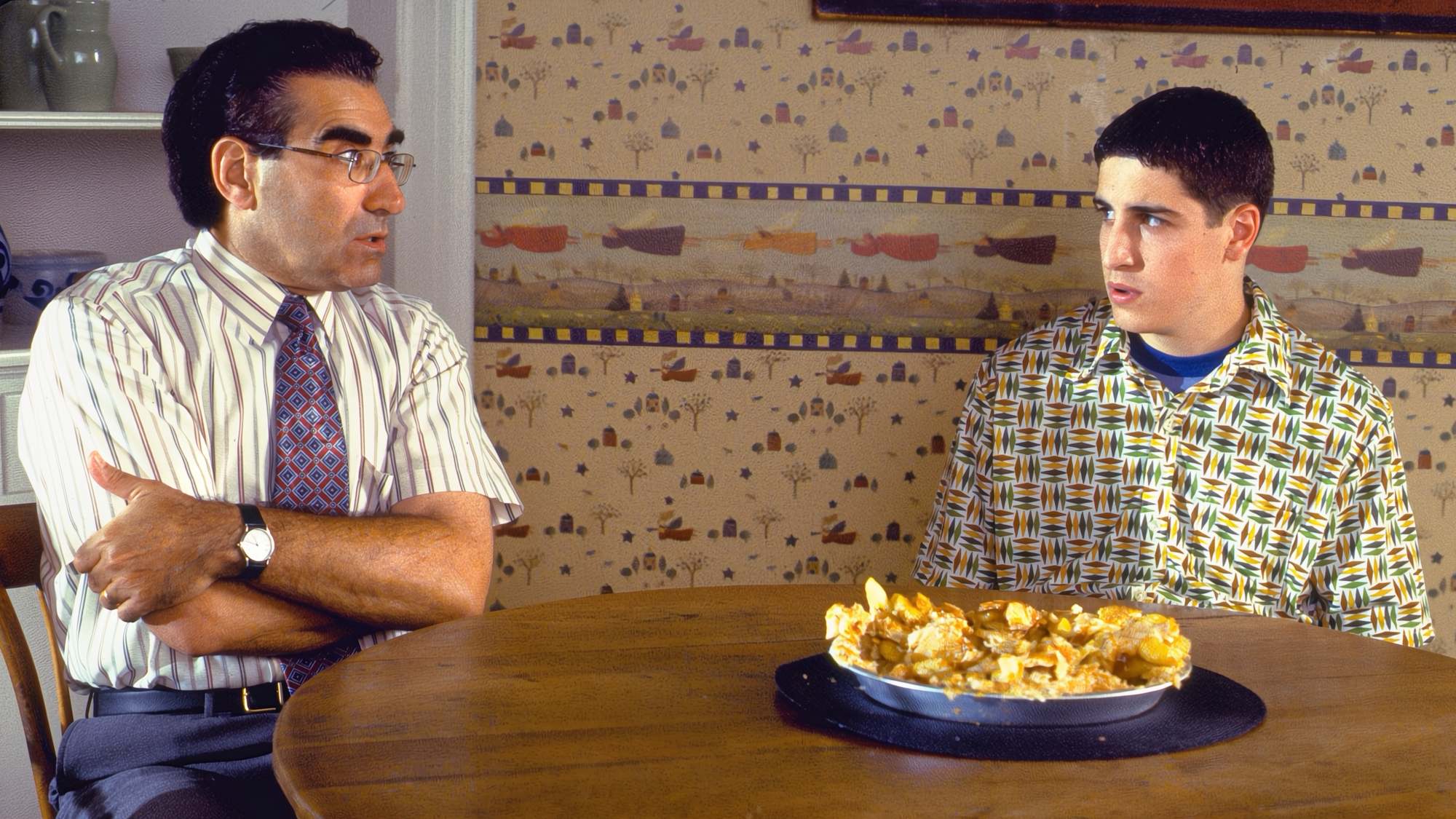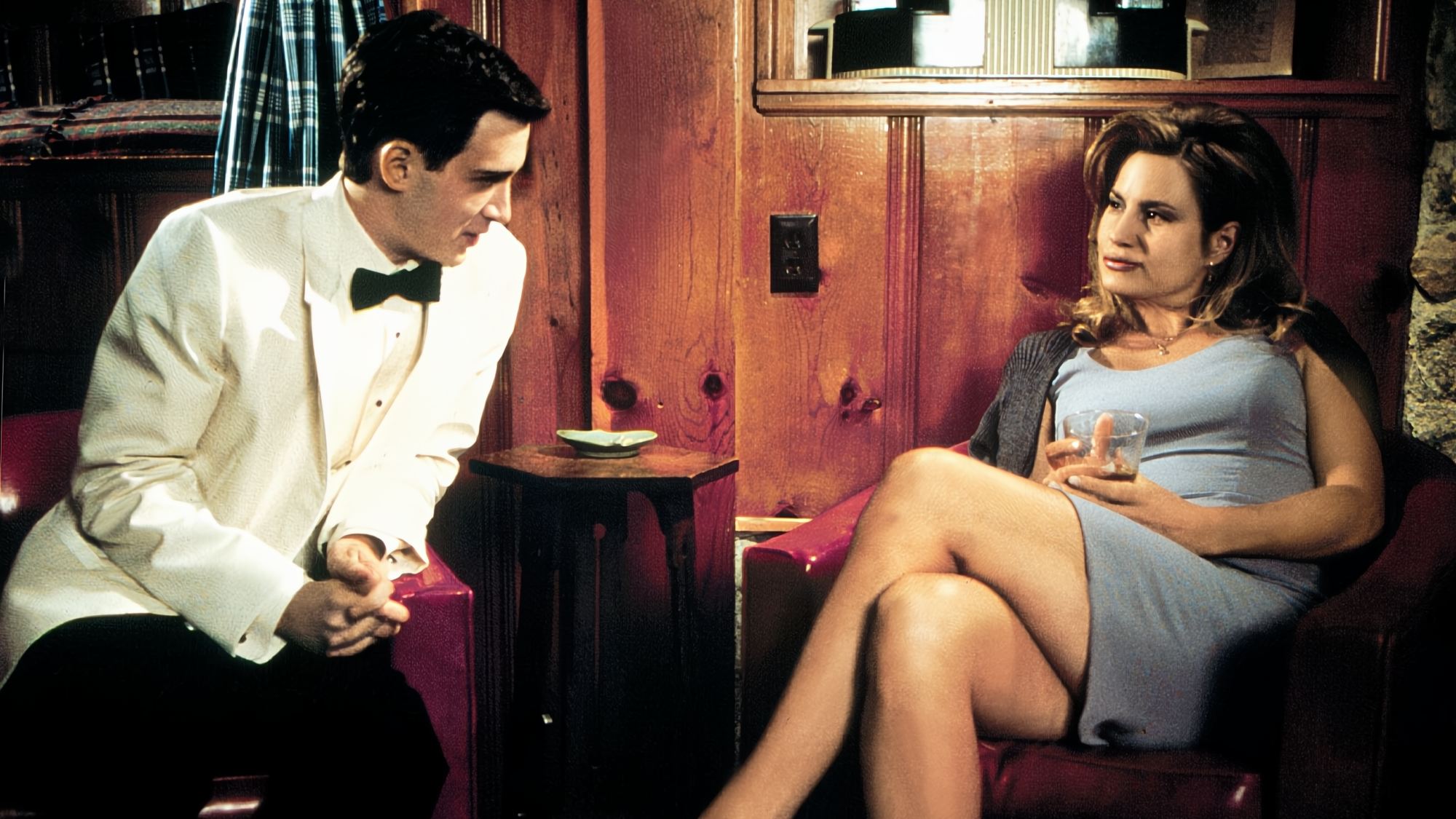
Twenty-five years ago, Jason Biggs had sex with an apple pie, and the rest was history. As vulgar as that sentence reads, there’s no beating around the bush when discussing “American Pie.” The teen sex comedy became a cultural phenomenon in July 1999, creating a legacy that still stands today.
In East Great Falls, Michigan, we meet five friends: Jim Levenstein (Jason Biggs), the nerd; Kevin Myers (Thomas Ian Nicholas), the confident leader; Chris “Oz” Ostreicher (Chris Klein), the jock with a heart; Paul Finch (Eddie Kaye Thomas), the intellectual; and Steve Stiffler (Sean William Scott), the Stiffmeister.
Besides Stiffler, the guys are virgins. With their time at East Great Falls High School coming to an end, the boys make a pact to lose their virginity before graduation. Would anyone care if these guys entered college without having sex? Probably not. But it’s fun watching these dumb yet charming guys make fools of themselves as they try to get laid.
The rebirth of the teen sex comedy
The sex comedy has roots in the ‘50s and ‘60s with “Some Like It Hot,” The Apartment” and “Gentlemen Prefer Blondes.” Things shifted in the late ‘70s and early ‘80s with “National Lampoon’s Animal House” and “Porkys.” The sex comedy was now catered toward teens, which makes sense considering high school kids are constantly thinking about sex and battling their hormones.
After a run of iconic ‘80s teen sex comedies — including “Risky Business,” “Fast Times at Ridgemont High” and “Revenge of the Nerds” — the genre disappeared for most of the 1990s. Then, just before the end of the decade, “American Pie” injected a seismic wave of energy into the genre, ushering in a new form of sex comedy that relied on gross-out gags and pushed high school tropes to the absolute limit.
“American Pie” was an underdog movie. Besides Nicholas and Eugene Levy, the cast was relatively unknown, with most of them having only a few film credits ton their resume. Behind the camera, Paul and Chris Weitz were first-time directors, while Adam Herz was a first-time screenwriter. Inspired by “Porky’s” and “Bachelor Party,” Herz famously titled the script “Untitled Teenage Sex Comedy That Can Be Made For Under $10 Million That Most Readers Will Probably Hate But I Think You Will Love.”
Essentially, “American Pie” is made by a ragtag group of amateurs. At times, you can feel the lack of experience in acting, writing, and directing. Other times, the amateurishness of the actors and filmmakers makes for funnier and more raw performances.
‘American Pie’ ushered in a new crop of stars
Because most of the actors were early in their careers, they all became famous together once “American Pie” became a hit. Biggs and Klein had movies built around their names for the next few years. Tara Reid, Shannon Elizabeth and Mena Suvari became Hollywood’s next “It” girls. Thomas and Hannigan became stars on television, with the latter notably starring on “How I Met Your Mother.”
Levy and Coolidge eventually won Emmys 20 years after “American Pie,” yet their roles as Mr. Levenstein and Stifler’s mom are still synonymous with their careers. Other actors in “American Pie” who had successful careers include Natasha Lyonne, Casey Affleck and John Cho.

With all that said, the actor who comes out of “American Pie” as the biggest star is Scott. Stiffler is the biggest jerk in the movie, but there is no “American Pie” without the Stiffmeister. He has a magnetic presence and serves as the biggest draw of the movie, especially to teenage boys, who either worship his antics or die laughing at his childish sense of humor.
Much of that humor has not aged well (more on that later). Yet you watch him drink the “special pale ale,” and there are tears in your eyes from laughter. There’s no denying Scott’s charisma and presence in this film. Stiffler is a car crash — you can’t look away, and you want to know more.
‘American Pie’s’ Legacy
Several gags and terms from “American Pie” have stood the test of time. Coolidge’s role as Stifler’s mom helped popularize the term “MILF.” Say “One time at band camp” to anyone ages 20 to 50, and 90% of those people will know it's from “American Pie.” The Shermanator. Third base is like warm apple pie. “Jim” in Levy’s trademark voice. These all became defining terms in pop culture.
As funny as “American Pie” can be, much of the humor did not age well. Many of the gags remain cruel, offensive, and, in some cases, illegal. Jim leaving his webcam on while Nadia undresses would put him on a watchlist in 2024. Karma does get Jim when he prematurely finishes multiple times. Then, there's Stifler, who would be canceled as soon as he opened his mouth, and rightfully so.
Morality aside, “American Pie” has stood the test of time due to its sweetness. In his three-star review of “American Pie,” Roger Ebert said it best. “It is not inspired, but it's cheerful and hard-working and sometimes funny, and--here's the important thing--it's not mean,” Ebert wrote. “Its characters are sort of sweet and lovable.”
Something is endearing about Jim ending up with Michelle, the band camp nerd, instead of Nadia, the stunning foreign exchange student. Despite Oz's unimpressive vocal abilities, you're rooting for him to nail his successful duet with Heather. Do most of the guys win over their respective girls? Sure, but the friendship between the five guys is the relationship that matters. This sentimentality helped “American Pie” become a nearly billion-dollar franchise. “American Pie” is sweet, but thankfully, not in a warm apple pie way.







